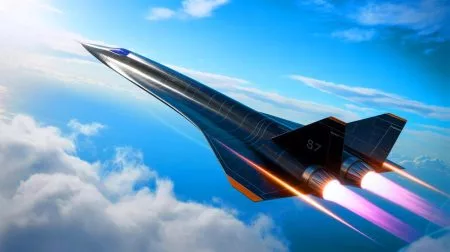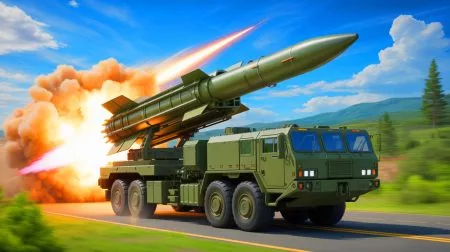| IN A NUTSHELL |
|
The recent seizure of a lithium-rich zone by Russian forces near Shevchenko, located in Ukraine’s Donetsk region, has significantly altered the geopolitical landscape. This strategic occupation underlines the vital role that natural resources, particularly lithium, play in international relations. Control over such a crucial resource highlights the increasing importance of mineral wealth in geopolitical conflicts. As global demand for lithium continues to rise, driven by decarbonization and technological advancements, the implications of this move are profound and far-reaching. This article examines the broader consequences of Russia’s control over this key resource and its impact on global mineral security and geopolitical dynamics.
Understanding the Significance of Shevchenko’s Lithium Reserves
The Shevchenko deposit, located approximately six miles from Velyka Novosilka, holds immense strategic value despite its seemingly low tactical importance. Lithium, known colloquially as “white gold,” is an essential component in various industries, including electric vehicle production, aerospace, energy storage, and electronics. As the world moves towards greener technologies, the demand for lithium has surged, paralleling efforts in decarbonization and military modernization.
In recent years, lithium prices have fluctuated significantly. In 2022, the price soared to over $80,000 per metric ton. Although prices have since decreased, the mineral remains of substantial commercial and strategic importance. Russia’s control over the Shevchenko site not only provides access to valuable resources but also signifies a consolidation of Ukraine’s natural assets. This occupation is a part of a larger trend where strategic resources become focal points in geopolitical contests, potentially hampering Ukraine’s post-conflict recovery and future international investments.
Impact on Ukraine’s Economic Prospects
Before the conflict, the Shevchenko area was a magnet for foreign investment, with Ukrainian state agencies eager to capitalize on its resources to reduce reliance on imported raw materials. However, the Russian occupation has thrown these plans into disarray, posing a significant obstacle to Ukraine’s economic recovery. Analysts view this as part of a broader Russian strategy to dominate key resource corridors, thereby restricting Ukraine’s access to crucial domestic revenue streams.
With mineral extraction sites under Russian control, Ukraine confronts new challenges in rebuilding its industrial base. This development is particularly troubling as international support for reconstruction grows. The occupation affects not only Ukraine’s immediate economic recovery but also raises questions about its long-term industrial stability and ability to attract foreign investment. Such uncertainty could have lasting effects on Ukraine’s economic landscape and its integration into the global economy.
A Significant Challenge for the US and Allies
In May, the United States and Ukraine signed a bilateral agreement to create the Investment Fund for Reconstruction and Critical Mineral Partnership. This initiative, a joint venture between Washington and Kyiv, aims to direct investments into key sectors such as mining, oil, gas, infrastructure, and processing projects within Ukraine. The Shevchenko lithium deposit was a centerpiece of this strategy.
However, Russia’s control over this critical area significantly jeopardizes these plans. The seizure complicates US and European efforts to establish resilient, non-Chinese supply chains for lithium and other vital minerals. As global competition intensifies, mineral security becomes crucial for NATO and EU member states. Lithium, cobalt, and rare earth elements are integral to energy transitions, defense manufacturing, and economic stability, making them central to international policy and security discussions. The situation at Shevchenko underscores the complexities of mineral security in modern geopolitical contexts.
“Mental Decline In Command Is A National Threat”: Experts Warn About Dementia And Depression Risks
Geopolitical and Economic Implications
By expanding its presence in Donetsk and gaining control over the Shevchenko lithium site, Russia enhances its capacity to influence regional resource flows and broader geopolitical dynamics. This move accentuates the growing role of mineral deposits in global markets and modern hybrid warfare, where economic assets are contested as fiercely as territorial boundaries. The occupation of such critical mineral sites reveals the intricate relationship between resource control and geopolitical strategy, highlighting how nations leverage natural assets to bolster their global influence.
The strategic significance of the Shevchenko site and similar reserves is undeniable. As countries navigate the challenges of energy transition and supply chain security, control over critical minerals will likely shape future diplomatic and economic landscapes. As the world observes these developments, one pivotal question arises: How will the international community respond to the increasing threat of resource-driven conflicts?
Did you like it? 4.6/5 (24)









Wow, das klingt ja nach einem echten geopolitischen Thriller! 😮
Wer hätte gedacht, dass ein so kleines Gebiet so viel Spannung erzeugen kann?
Warum ist Lithium eigentlich so wichtig für die Weltwirtschaft?
Das könnte das nächste große Thema für einen Hollywood-Film sein! 🎬
Ich frage mich, ob das wirklich so dramatisch ist, wie es hier dargestellt wird…
Interessanter Artikel, aber was passiert jetzt mit den Investitionen in die Region?